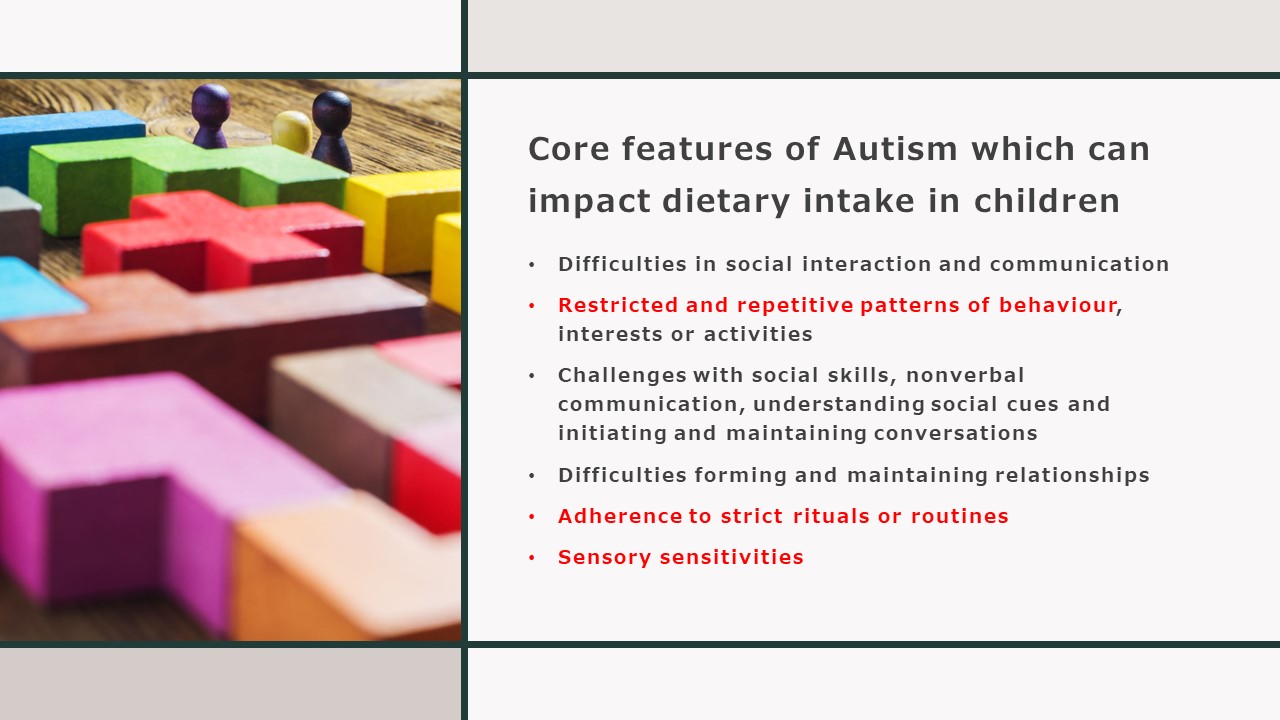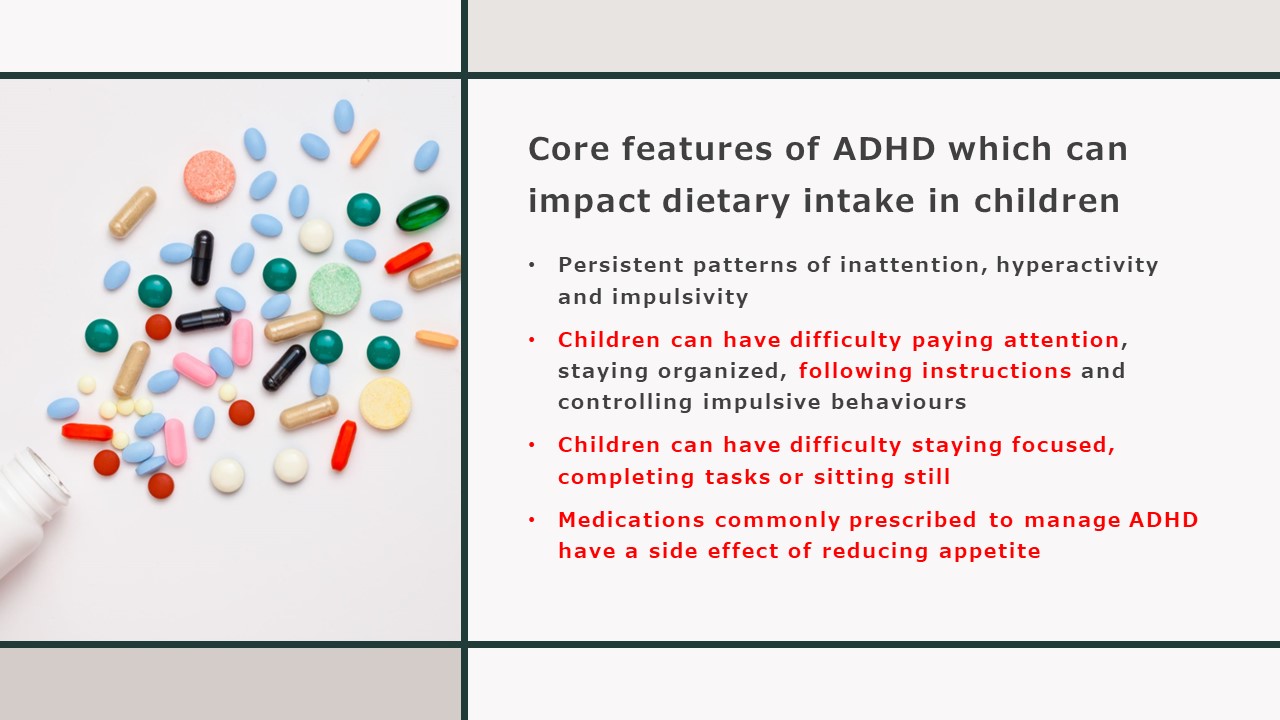Autism and ADHD in children by Miriam Raleigh, APD, Paediatric Dietitian
 Anthea Talliopoulos, APD
Anthea Talliopoulos, APD
Autism and ADHD are two distinct neurological disorders which can create unique nutritional challenges. While these conditions can coexist, it is important as dietitians that we understand the different conditions and some of the challenges that children with these conditions face. Food behaviours which children with autism can present with can include restricted and repetitive patterns of eating, adherence to strict rituals or routines, and sensory sensitivities. On the other hand, children with ADHD may have difficulty paying attention, following instructions, staying focused at meals and snacks, a reduced appetite as a side-effect of their medications, and having difficulty sitting still (which can increase their energy requirements).
Through the use of case studies, Accredited Practising Dietitian and Paediatric Dietitian Miriam Raleigh explains the variable nutritional challenges which children with autism or ADHD can experience. She explains ways to broaden the nutritional intake of children with autism through working with the child and the parents in discussing and brainstorming ways to broaden their dietary intake, such as through exploring food options with preferred textures and flavours in a practical way. For example, Miriam explains how setting just one mealtime per week to trial a different meal idea at a family dinner can increase the child’s food exposure, reduce the likelihood of the child feeling overwhelmed at mealtimes, while also reducing the pressure on parents.
When ADHD is considered, strategies to overcome eating behaviours such as fussy eating, making the most of the times of day when their appetite is highest, and involving the child in packing their own lunchbox to increase their food exposure can increase the child’s nutritional intake. Miriam also explains how relevant nutritional supplementation can also be included as part of the nutritional management plan where the child’s dietary intake is inadequate or restrictive in specific macronutrients or micronutrients.
Overall, it is critical that our approach and advice is individualised to the child and their environment, and that underlying food behaviours are addressed to ensure that the child’s nutritional intake is optimal for healthy growth and development.
Summary:
- Autism and ADHD are two distinct neurological disorders which can create unique nutritional challenges.
- Children with autism can present with include restricted and repetitive patterns of eating, adherence to strict rituals or routines, and sensory sensitivities. On the other hand, children with ADHD can have difficulty paying attention, following instructions, staying focused at meals and snacks, having difficulty sitting still (which can increase their energy requirements), as well as sometimes presenting with a reduced appetite (as a medication side-effect).
- Overall, it is critical that our approach and advice is individualised to the child and their environment, and that underlying food behaviours are addressed to ensure that the child’s nutritional intake is optimal for healthy growth and development.
Miriam Raleigh has been working with children since she completed her certificate in paediatric dietetics from the Royal Children’s Hospital in Melbourne 16 years ago. She has extensive experience in children’s nutrition which includes the Royal Children’s Hospital in Melbourne and Great Ormond Street Hospital for Children in London and her paediatric private practice Child Nutrition

